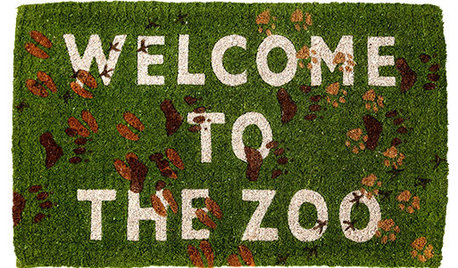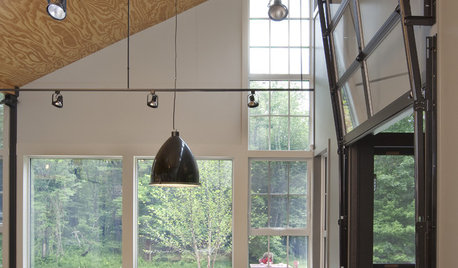intro
prmsdlndfrm
14 years ago
Related Stories

LIGHTINGVintage Lighting Shines
Add to your personal look with a great vintage table lamp, floor lamp or retro-style pendant
Full Story
CONTEMPORARY HOMESHouzz Tour: Comfy Cottage Style With an Industrial Touch
Designed for a lifetime of togetherness, a new build in British Columbia mixes universal features with easygoing looks
Full Story
GREEN BUILDINGLet’s Clear Up Some Confusion About Solar Panels
Different panel types do different things. If you want solar energy for your home, get the basics here first
Full Story
40 Fun Gifts for Your Pet-Loving Friends
Houzz Gift Guide: 40 New Ways to Love Dogs, Cats and Birds in Style
Full Story
MIDCENTURY STYLE6 Inspiring Midcentury Australian Homes
Avant-garde homes of the '50s helped fuel decades of Australian innovation
Full Story
ARCHITECTUREThe Hidden Factors Driving Your Home's Design
Before you can talk aesthetics on a new build or remodel, you've got to open the floor to rules and requirements
Full Story









brendasue
marlingardener
Related Professionals
Glassmanor Landscape Architects & Landscape Designers · Seabrook Landscape Architects & Landscape Designers · Burlington Landscape Contractors · Middletown Landscape Contractors · Byram Landscape Contractors · Gresham Landscape Contractors · Morrisville Landscape Contractors · Northport Landscape Contractors · Vadnais Heights Landscape Contractors · American Fork Fence Contractors · Columbia Fence Contractors · Georgetown Fence Contractors · Voorhees Fence Contractors · King of Prussia Decks, Patios & Outdoor Enclosures · Palm Beach Gardens Decks, Patios & Outdoor Enclosuresvelvet_sparrow
pamghatten
velvet_sparrow
prmsdlndfrmOriginal Author
nhsuzanne
twonicklefarms
pamghatten